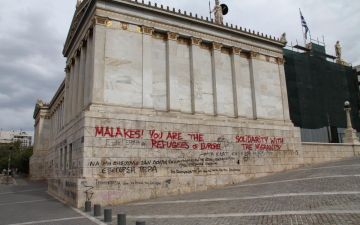Europe’s economic crises have dominated recent headlines, as well as the agendas of policymakers who scramble for remedies to the continent’s spreading financial contagion. Less attention has been paid to the intertwined political troubles the economic crisis and austerity prescriptions helped foster: the rise of extremist parties and a surge in anti-democratic trends.
The consequences are most dramatic in Hungary, home to the Jobbik party whose brand of fascism recalls the specter of 1930s Europe, and the ruling center-right Fidesz party that has railroaded through a new constitution and taken firm control of schools, courts and the press. A similar phenomenon is on display in Greece, where the rise of the fascist Golden Dawn party took many by surprise when they captured 7 percent of the national vote and 20 seats in parliament in May.
While the Hungarian and Greek cases have parallels elsewhere across the continent, they are also part of a larger decline in democratic values most visible in the hard-hit, poorer countries in central and eastern Europe—a phenomenon Paul Krugman calls “a siege on democracy.” This project looks at the political and human consequence of these trends as well as some potential solutions.




